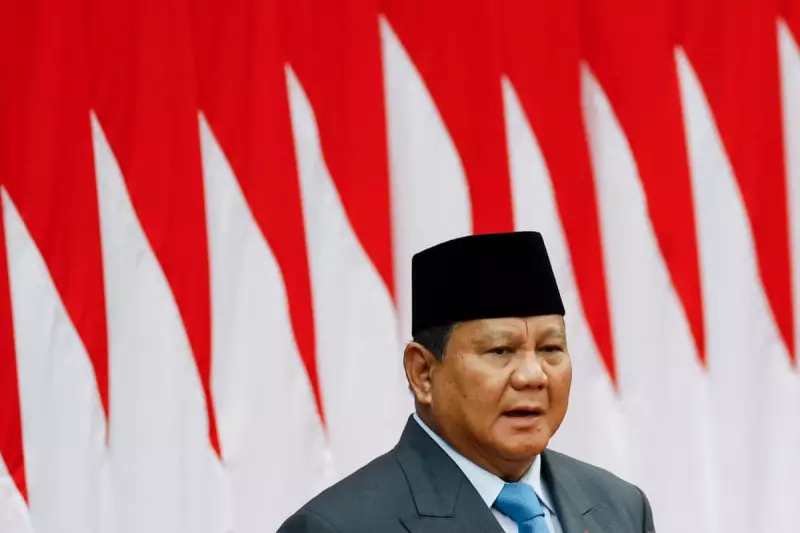
In a move that has sent shockwaves through Indonesia's political landscape and alarmed international observers, President Prabowo Subianto has formally enacted a presidential decree significantly expanding the military's remit in civilian governance.
The controversial instruction, signed on Wednesday, empowers the Indonesian National Armed Forces (TNI) to assist civilian authorities across a broad spectrum of public services. This includes everything from infrastructure projects and healthcare initiatives to education programs and disaster response, effectively blurring the long-standing lines between military and civilian domains.
A Return to the Past?
For many Indonesians and human rights organisations, the decree evokes dark memories of the Suharto era's 'dwifungsi' or dual-function doctrine, where the military held immense political and social power. This policy was largely dismantled following the dictator's fall in 1998, a cornerstone of the nation's transition to democracy.
Critics are now asking if this decree represents a dangerous slide back towards the past. Andreas Harsono, a senior researcher at Human Rights Watch, condemned the move, stating it "threatens to drag Indonesia back to the Suharto era" and undermines over two decades of arduous democratic reform.
Official Justification vs. Public Fear
The government and military officials have been quick to defend the decision. They frame it as a pragmatic solution to logistical and administrative challenges, particularly in remote and underdeveloped regions where civilian infrastructure is weak. They insist the military's role will remain one of support, strictly under the command of civilian leaders.
However, this assurance has done little to quell widespread concern. Opponents argue that formally embedding military personnel into the everyday functions of the state normalises their presence in public life and creates a slippery slope. The fears are compounded by Prabowo's own background as a former special forces general with a controversial human rights record.
A Deeply Polarising Figure
President Prabowo's history is inextricably linked to this controversy. Allegedly involved in the kidnappings of democracy activists in the late 1990s and accused of war crimes in East Timor, his election itself was divisive. This latest decree is seen by many as a fulfilment of his long-held ideological belief in a strong, centralised state with a powerful military at its core.
The move has drawn immediate condemnation from a coalition of human rights groups, legal experts, and former politicians who view it as unconstitutional. They argue that it violates the principle of civilian supremacy, a key tenet of a healthy democracy, and fear it could be used to suppress dissent and undermine accountability.
As the decree moves towards being formalised into law by a legislature dominated by Prabowo's coalition, Indonesia finds itself at a critical juncture. This decision is more than a policy shift; it is a test of the resilience of the world's third-largest democracy and its commitment to keeping the military out of politics.





